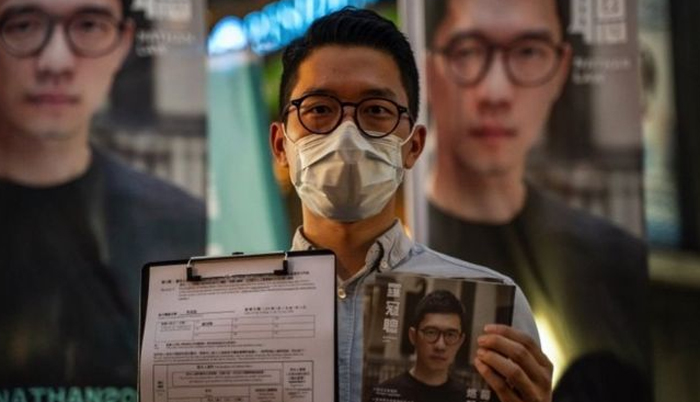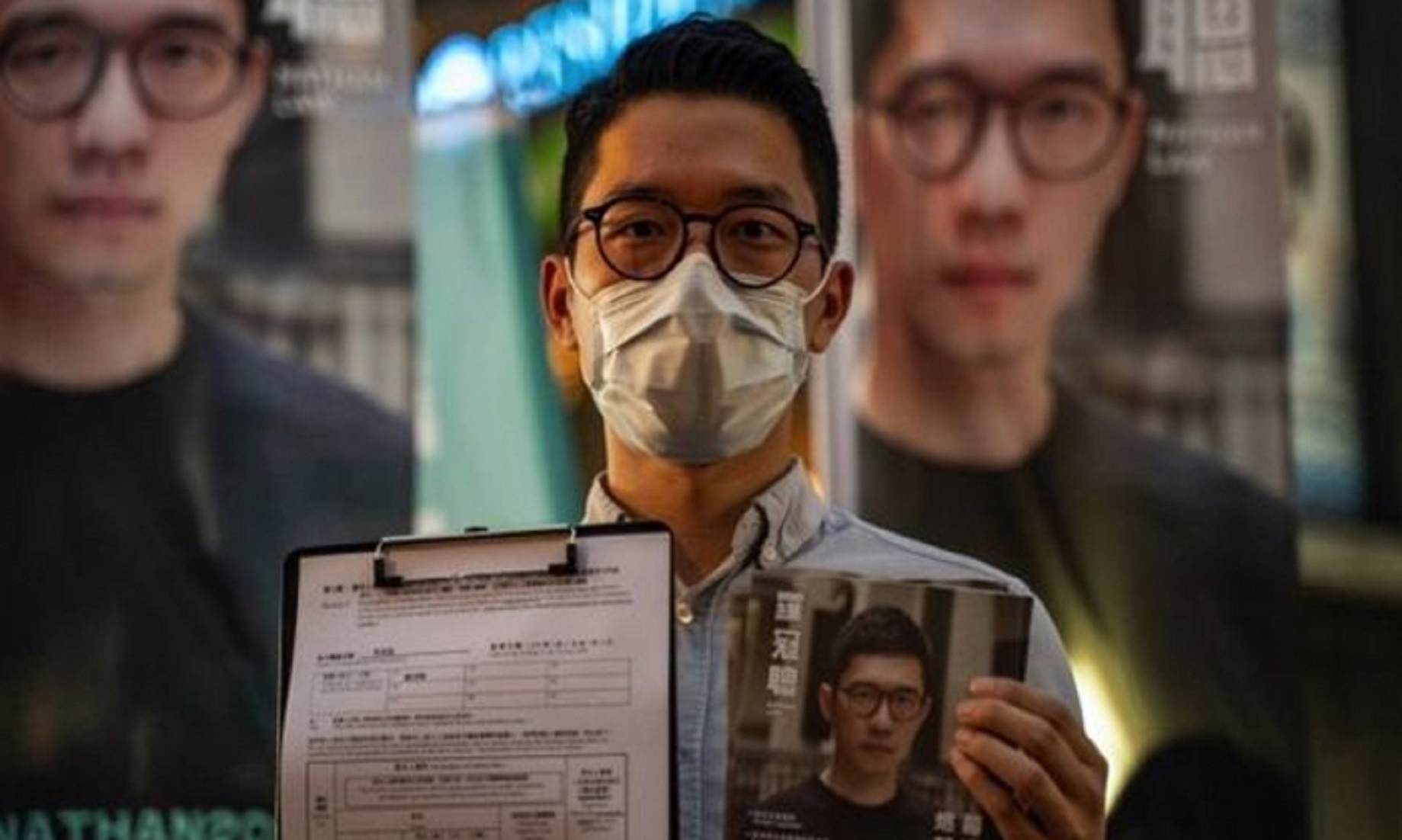
HONG KONG, July 3 (NNN-AGENCIES) —One of Hong Kong’s most prominent young democracy activists has fled the territory after China imposed a sweeping, controversial security law.
Nathan Law, a one-time student leader and local legislator who spent time in prison after 2014’s “Umbrella Protests”, said he would continue his advocacy work from abroad.
He announced he had left two days after China brought in its new security law.
Activists say it erodes freedoms but Beijing has dismissed the criticism.
Hong Kong’s sovereignty was handed back to China by Britain in 1997 and certain rights were supposed to be guaranteed for at least 50 years under the “one country, two systems” agreement.
But opponents of the new law, which targets secession, subversion and terrorism with punishments up to life in prison, say it effectively ends freedom of speech.
Within moments of it being announced on Tuesday, Law said he was stepping down from Demosito Party, which he co-founded with well-known activist Joshua Wong. At the time, he said the law marked the start of a “bloody cultural revolution”.
On Wednesday, Law spoke via videolink to a US Congressional hearing on Hong Kong. He told American politicians he was worried about returning to the territory, for fear of being imprisoned by Beijing.
Then, on Thursday, he released a statement to the media saying he had already left Hong Kong but would “continue the advocacy work on the international level”.
He did not say where he had gone, adding: “Based on risk assessment, I shall not reveal too much about my personal whereabouts and situation now.”
Law was, in 2016, the region’s youngest legislator. At the time, he argued that the former British colony must be allowed a referendum on its future. He has said he does not want Hong Kong to become “just another Chinese city”.
He was later disqualified after he was found to have improperly taken his swearing-in oath.
The law – which China has said is necessary to stop the type of pro-democracy protests seen in Hong Kong during much of 2019 – is wide-ranging, making inciting hatred of China’s central government and Hong Kong’s regional government offences.
It also allows for closed-door trials, wire-tapping of suspects and the potential for suspects to be tried on the Chinese mainland.
Acts including damaging public transport facilities – which often happened during the 2019 protests – can be considered terrorism.
And since it was introduced on Tuesday, the local government has announced that the slogan “Liberate Hong Kong, Revolution of our Times” is illegal. Law used the phrase during the Congressional hearing on Wednesday.
Ten people have already been arrested under the law during protests which took place on July 1. — NNN-AGENCIES






